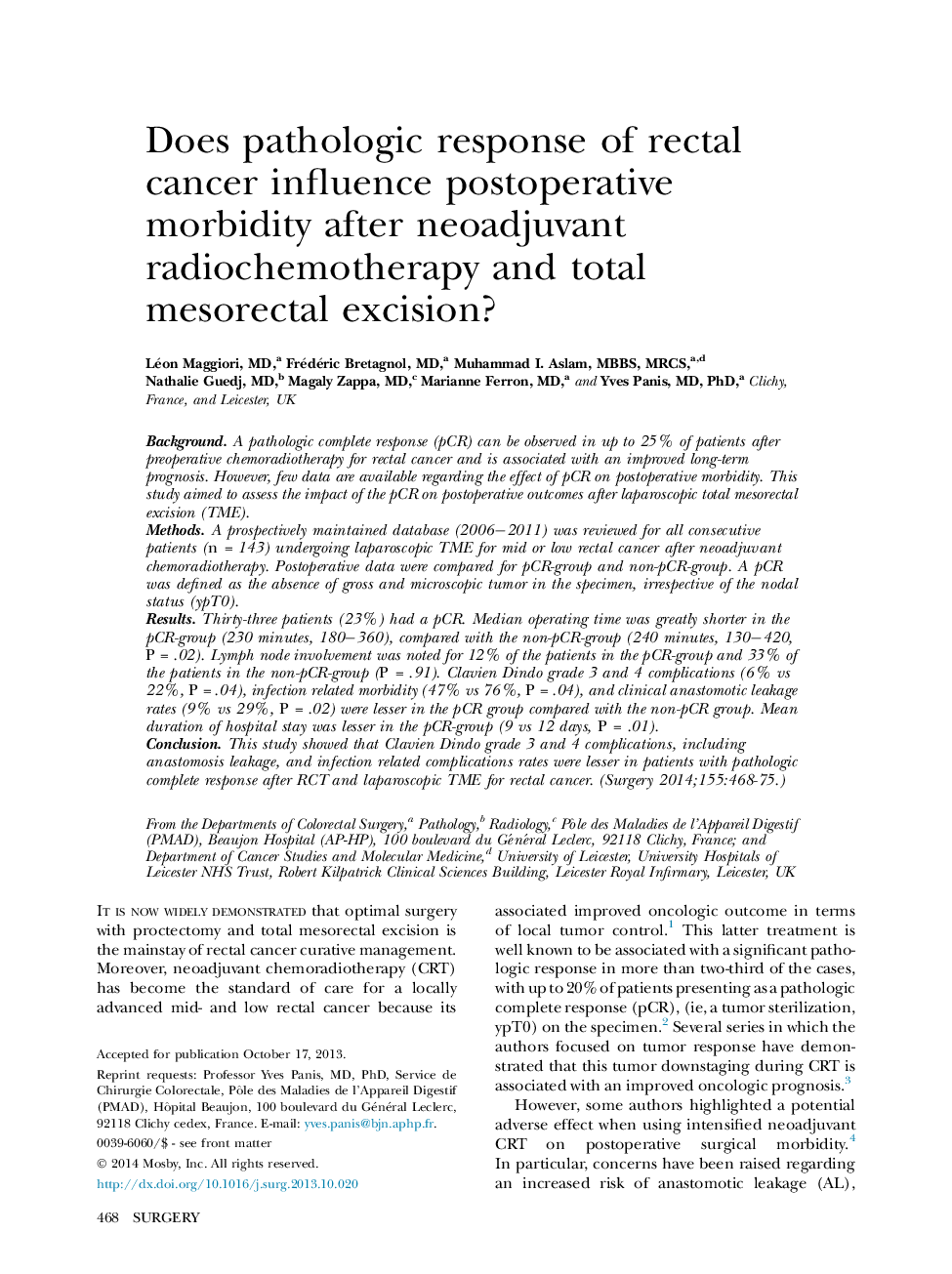| Article ID | Journal | Published Year | Pages | File Type |
|---|---|---|---|---|
| 6255583 | Surgery | 2014 | 8 Pages |
BackgroundA pathologic complete response (pCR) can be observed in up to 25% of patients after preoperative chemoradiotherapy for rectal cancer and is associated with an improved long-term prognosis. However, few data are available regarding the effect of pCR on postoperative morbidity. This study aimed to assess the impact of the pCR on postoperative outcomes after laparoscopic total mesorectal excision (TME).MethodsA prospectively maintained database (2006â2011) was reviewed for all consecutive patients (n = 143) undergoing laparoscopic TME for mid or low rectal cancer after neoadjuvant chemoradiotherapy. Postoperative data were compared for pCR-group and non-pCR-group. A pCR was defined as the absence of gross and microscopic tumor in the specimen, irrespective of the nodal status (ypT0).ResultsThirty-three patients (23%) had a pCR. Median operating time was greatly shorter in the pCR-group (230 minutes, 180â360), compared with the non-pCR-group (240 minutes, 130â420, P = .02). Lymph node involvement was noted for 12% of the patients in the pCR-group and 33% of the patients in the non-pCR-group (P = .91). Clavien Dindo grade 3 and 4 complications (6% vs 22%, P = .04), infection related morbidity (47% vs 76%, P = .04), and clinical anastomotic leakage rates (9% vs 29%, P = .02) were lesser in the pCR group compared with the non-pCR group. Mean duration of hospital stay was lesser in the pCR-group (9 vs 12 days, P = .01).ConclusionThis study showed that Clavien Dindo grade 3 and 4 complications, including anastomosis leakage, and infection related complications rates were lesser in patients with pathologic complete response after RCT and laparoscopic TME for rectal cancer.
